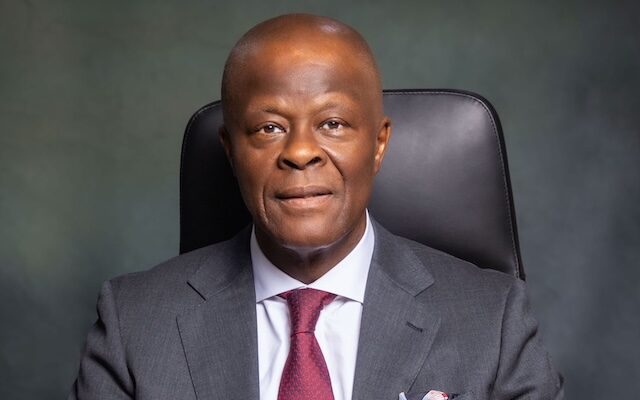Non-Communicable Diseases (NCDs), including heart disease, stroke, cancer, diabetes and chronic lung disease, are collectively responsible for 74% of all deaths worldwide.
More than three-quarters of all NCDs deaths, and 86% of the 17 million people who die prematurely, or before reaching 70 years of age, occur in low-and middle-income countries.
The lack of implementation of proven interventions exacerbates the disparity between affluent and impoverished populations, resulting in unnecessary economic burdens amounting to trillions of dollars globally.
In Ghana, NCDs continue to undermine social and economic stability, causing over 94,000 deaths annually representing about 43% of all deaths, despite efforts over the years in adopting policies to tackle NCDs.
Key risk factors, including tobacco use, physical inactivity, unhealthy diet, alcohol use, and air pollution, drives the prevalence of NCDs, entrenches poverty within households and communities, increases inequalities, and hinders progress towards Universal Health Coverage.
The increasing burden of NCDs and out-of-pocket payment expenses places an enormous socio-economic burden on populations. The lack of affordable, equitable and quality services at the primary health care level affects NCD response due to inadequate funding.
Due to the growing burden of NCDs which causes strain on health systems, persons living with NCDs spend long hours at health centers, thereby affecting work productivity.
In addition, due to the financial hardship and cost of these healthy diets, they are unable to adopt healthy lifestyles. Important to note that despite the inclusion of many NCDs on the NHIS benefit package, in reality, majority of the NCDs support catastrophic out of pocket payment.
An estimated 22,000 lives in Ghana can be saved if all the WHO Expanded NCD Best Buys are implemented effectively to accelerate progress on preventing and controlling NCDs.
Countries like Ethiopia, Cambodia, Thailand and Philippines have reformed their alcohol and tobacco tax structure, earmarked revenues to fund their universal health coverage scheme, increased budget allocated for NCDs, and prioritized NCD interventions in primary care.
Integrating NCD prevention and management into existing health programs such as HIV/AIDS, tuberculosis, malaria, maternal and child health, sexual and reproductive health, and other priority population programs to ensure that quality healthcare is given on a one stop shop basis and not traveling to seek for care from one facility to the other.
This will reduce the suffering of people with co- morbidity and multi-morbidity.
The CSOs NCD Manifesto offers an opportunity to elevate NCDs to the highest level of political discourse and align political commitments with the prevention and control of NCDs to achieve Universal Health Coverage in Ghana.
To effectively address the burden of NCDs and mental health issues in Ghana, it is imperative for political parties to commit to implementing robust and practical measures aimed at reducing the socioeconomic burden of NCDs on the Ghanaian population.
Some of these measures include the following:
Increase the budgetary allocation for NCDs to strengthen health systems, support health promotion and prevention, early diagnosis and detection, and management to build a resilient healthcare system.
Political parties to commit to exempt the National Health Insurance Fund from the list of statutory funds that are capped. Political parties must consider uncapping the National Health Insurance Levy to reduce the increased hardship and the catastrophic out of pocket expenditure faced by ordinary Ghanaians.
Upgrade the healthcare infrastructure in hard-to-reach areas and rural communities and ensure the provision of essential medicines and basic diagnostic equipment to guarantee timely and equitable access to healthcare for all.
Implement and enforce regulations on health-harming products such as tobacco (shisha, electronic cigarettes, vapes, etc), alcohol, sugar-sweetened beverages, foods high in saturated fats/trans-fats, and salt to reduce the prevalence of NCDs.
Adopt sustainable financing mechanisms to address the healthcare financing gaps and challenges faced by the National Health Insurance Scheme (NHIS). This can be achieved by progressively increasing the taxes on unhealthy products and earmark the funds to finance health, research and cessation.
Invest adequately in primary health care facilities including Community base Health Planning Services (CHPS), and district hospitals and health facilities to reduce long distance travel to seek care, improve early diagnosis and treatment.
Invest adequately in health literacy and health promotion.
Implement and enforce regulation on the advertisement of alcohol, emerging tobacco products, unhealthy commodities and other substances of abuse to the young people.
Demarcate and reclaim public parks and gardens to enhance physical activity and for other recreational purposes.
By committing to these recommendations, political parties will not only advance the health and well-being of the Ghanaian population but also reinforce the principles of social justice and human rights as enshrined in the nation’s Constitution.
Ensuring the involvement of people living with NCDs and mental health conditions in policy development and decision-making will further enhance the relevance and impact of health policies.
Increased political commitment is essential to achieving quality and accessible universal healthcare for all without exception.
The post Civil society urges political parties to prioritize NCDs in their manifestos ahead of Ghana’s 2024 election appeared first on The Herald ghana.







